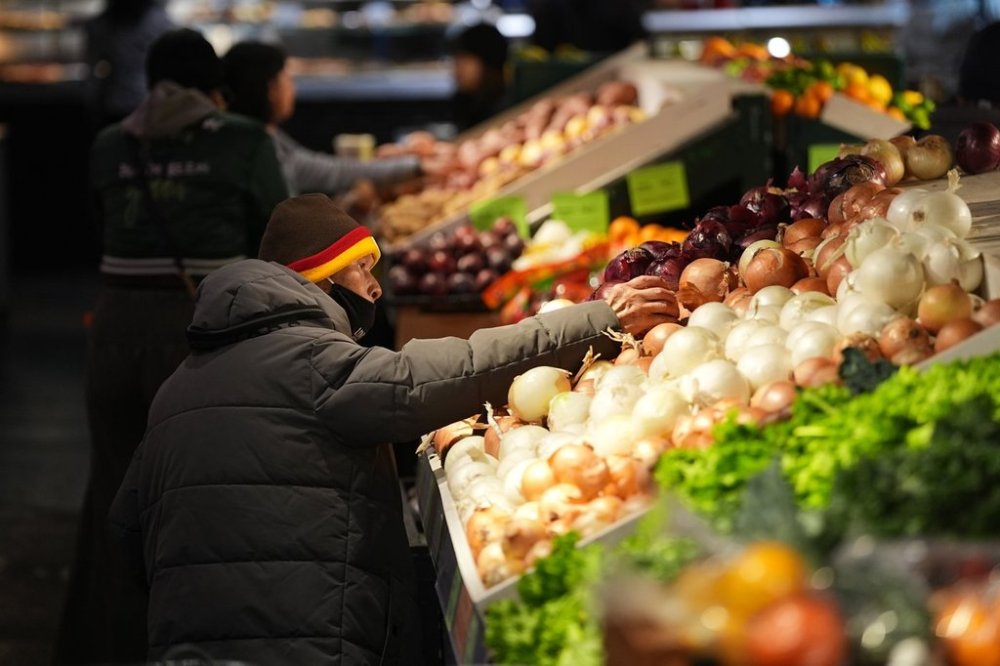U.S. trade deficit drops 24% in August as Trump’s tariffs reduce imports
Advertisement
Read this article for free:
or
Already have an account? Log in here »
To continue reading, please subscribe:
Monthly Digital Subscription
$0 for the first 4 weeks*
- Enjoy unlimited reading on winnipegfreepress.com
- Read the E-Edition, our digital replica newspaper
- Access News Break, our award-winning app
- Play interactive puzzles
*No charge for 4 weeks then price increases to the regular rate of $19.00 plus GST every four weeks. Offer available to new and qualified returning subscribers only. Cancel any time.
Monthly Digital Subscription
$4.75/week*
- Enjoy unlimited reading on winnipegfreepress.com
- Read the E-Edition, our digital replica newspaper
- Access News Break, our award-winning app
- Play interactive puzzles
*Billed as $19 plus GST every four weeks. Cancel any time.
To continue reading, please subscribe:
Add Free Press access to your Brandon Sun subscription for only an additional
$1 for the first 4 weeks*
*Your next subscription payment will increase by $1.00 and you will be charged $16.99 plus GST for four weeks. After four weeks, your payment will increase to $23.99 plus GST every four weeks.
Read unlimited articles for free today:
or
Already have an account? Log in here »
WASHINGTON (AP) — The U.S. trade deficit fell by nearly 24% in August as President Donald Trump’s sweeping global tariffs pushed imports lower.
In a report delayed for more than seven weeks by the federal government shutdown, the Commerce Department said Wednesday that the the gap between what the United States buys from other countries and what it sells them fell to $59.6 billion in August, from $78.2 billion in July.
Imports of goods and services dropped 5% to $340.4 billion in August from July when U.S. companies were stocking up on foreign products before Trump finalized taxes on products from almost every country on earth. Those levies went into effect Aug. 7.

U.S. exports blipped up 0.1% in August to $280.8 billion.
Trump, charging that America’s persistent trade deficits mean that other countries have taken advantage of the U.S., has overturned decades of U.S. policy in favor of free trade, slapping double-digit tariffs on imports from most countries and targeting specific products, including steel, copper and autos, with their own levies.
Still, the U.S. trade deficit is up so far in 2025, coming in at $713.6 billion through August, up 25% from $571.1 billion in January-August 2024.
A drop in imports and the trade deficit is good for economic growth because foreign products are subtracted from the nation’s gross domestic product. GDP is the output of a nation’s goods and services.
“August’s smaller trade deficit will be a tailwind for third quarter real GDP, since it means that more U.S. expenditures were directed toward domestically-produced goods and services rather than foreign ones,” Bill Adams, chief economist at Comerica Bank, wrote in a commentary. “While this release is quite dated because of the government shutdown, it contributes to evidence that the economy was growing briskly in the third quarter.”
Tariffs, which Trump says will protect U.S. industries and lure factories to America, are paid by importers who typically attempt to pass along the higher cost to their customers. Economists say Trump’s tariffs are one reason U.S. inflation remains stubbornly above the Federal Reserve’s 2% target.
After voters’ dissatisfaction with the high cost of living led to big Democratic gains in the Nov. 4 elections, the president relented and dropped tariffs last week on beef, coffee, tea, fruit juice, cocoa, spices, bananas, oranges, tomatoes and certain fertilizers, saying they “may, in some cases” have contributed to higher prices.
His tariffs are also facing a legal challenge that has gone to the Supreme Court. In a Nov. 5, hearing, the justices sounded skeptical that the president had the authority to bypass Congress and slap unlimited tariffs on most imports simply by declaring a national emergency.
____
AP Writer Josh Boak contributed to this report.

